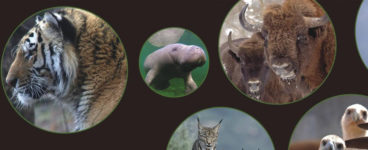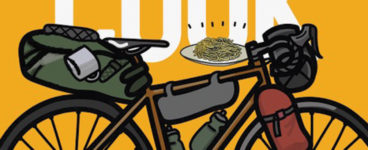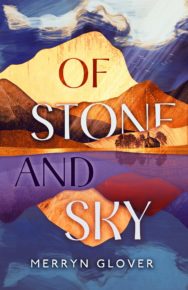‘They did not speak their names or venture the reasons for their departures for fear of what that might reveal. They just carried on.’
After shepherd Colvin Munro disappears, a mysterious trail of his twelve possessions leads into the Cairngorm mountains. His foster sister Mo and prodigal brother Sorley are driven to discover the forces that led to his disappearance.
As a former church minister and current owner of the local pub, Mo thinks she knows everyone’s story: Colvin’s Traveller mother, alcoholic war-vet father, Bolivian wife, musician daughter, bird-obsessed son, his friends and foes. Sorley, returning home from his life in the City, brings unsettling revelations.
Extract taken from Of Stone and Sky
By Merryn Glover
Published by Polygon
An uncertain April. By turns fragile and fierce, days shifting between mizzle and sun, nights curled up in cloud or naked to frost. The land is only half awake. Still a little crushed by that hard husband winter and not yet dreaming of summer, it heals slowly to the touch of spring.
Colvin was first up, dragged by a jangling alarm from his bed of unwashed sheets to the heap of unwashed clothes and down to the unwashed kitchen. Since Mo had left last summer, dust had settled on every surface, grime built up in crevices, mould spread. He had never known where to start or finish and Gid was no help and Sorley – so young and bewildered – little better. Eventually, Colvin had just given up the fight.
But he couldn’t give up on the farm. The sheep. They pulled him out in all weathers to be fed or gathered or lambed or rescued. Some days he cursed and wrangled with them like demons. Other times he felt protective, fond, even proud. A mix of Cheviot and Blackface with strains of Texel, Border Leicester and Swaledale, some of the ewes had bloodlines going back to the beginning of Rowancraig sheep walk two hundred years before, and in his grandfather’s time they’d been the prize flock of the strath. But that was history.
As Colvin stepped outside, the air was cool, the sky laden. Snow clung to the higher hills, but the ground on the farm was trodden mud. Last year’s lambs were pushed together in the fank, butting and bleating. On the far side of the pens, Gid was lighting a coal fire in a rusty 5 gallon drum. Bent over in his stained jacket and cap, with spidery red cheeks and lined face, he looked older than his 53 years and weary. Smoke rose in stinging plumes around him, making him cough and swear as he poked four irons into holes at the sides. Nearby, Sorley swung on a gate. His clothes were grubby, wellies split, his upper lip raw from constant colds, and he wiped it on the sleeve of his sweatshirt. No one put clean hankies in his pockets any more.
Colvin pushed through the sheep on the inside of the pen, the smells of damp wool and droppings rising to him on the waves of noise. Everything smelled of sheep: the house, his clothes, his hair and hands. He hauled the nearest hogg up against the fence, clamping it with his body and laying its right horn over a rung.
‘Here we go!’ Sorley yelped. He was like that. Bringing voice to the day’s work while Gid and Colvin said little. It was not companionable silence, but avoidance; a skirting around of the painful, unacknowledged things at the centre of their lives. The women. They did not speak their names or venture the reasons for their departures for fear of what that might reveal. They just carried on. And Colvin – now nineteen – carried his anger and grief like concrete in his lungs.
As for Sorley? Colvin saw that he was fed and clothed and sent to school each day, with something for lunch. A clumsy piece with jam, or a margarine tub of leftovers. At bedtime, he knelt beside him to hear the prayers that Agnes had taught and Mo had upheld.
I lie down this night
With the nine angels,
From the crown of my head
To the soles of my feet;
From the crown of my head
To the soles of my feet.
The head was a tangle of unwashed curls, the feet filthy, the angels nowhere to be seen. Colvin would hug him – feeling every rib under the flannelette pyjamas and the twiggy arms – and wait for the questions he could not answer. Till eventually they dried up and there was nothing in the hug but heartbreak.
Gid – who got up each day and went through the motions of the farm like a man on a chain gang – drew an iron out of the fire and pressed it into the hogg’s horn. There was a sizzling moment and then the same again with a second iron. R4. Rowancraig, 1974. Branded now, they belonged and would stay on these hills to breed for five years. Unless they died, or got barren, or difficult, or broke their teeth, when they would get marks in the horn and be sold for slaughter.
Sorley jumped off his gate and herded the branded hoggs into the next pen. ‘Whaw! Whoosh, whoosh!’ He clapped and glanced up at his brother and father. Nobody smiled. When the branding was done, Gid left his post at the fire drum and moved round to the side of the dipping trough, full of a stinking swill of chemicals to ward off scab, lice and tics. As Sorley released them down a run, Colvin ushered them through metal gates and one by one, shoved each hogg into the dip. Though it wasn’t necessary, he kicked them in. Gid then pushed them under with a long-handled broom and they surfaced a moment later, scrambling out of the trough, wet-brown and bleating.
Baptism by full immersion.
Of Stone and Sky by Merryn Glover is published by Polygon, priced £16.99.
ALSO IN THIS ISSUE

 Back From the Brink
Back From the Brink
‘Canoeing slowly along the tree-shaded Blue Spring, it was the sound of frequent nose blowing on the …

 Eat Bike Cook: Food Stories and Recipes from Female Cyclists
Eat Bike Cook: Food Stories and Recipes from Female Cyclists
‘There is no cream in a classic carbonara but its addition is merited by any cycling cook looking to …













